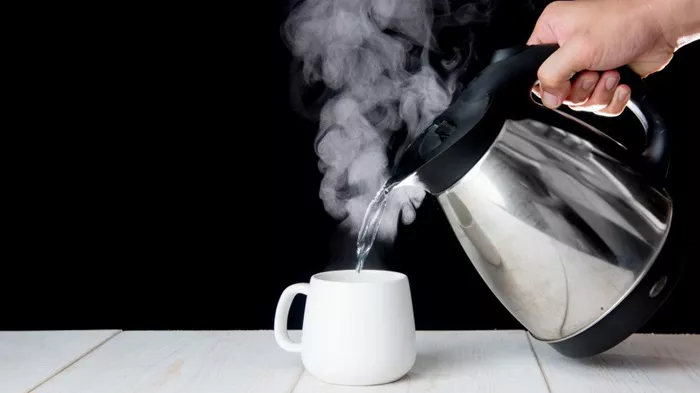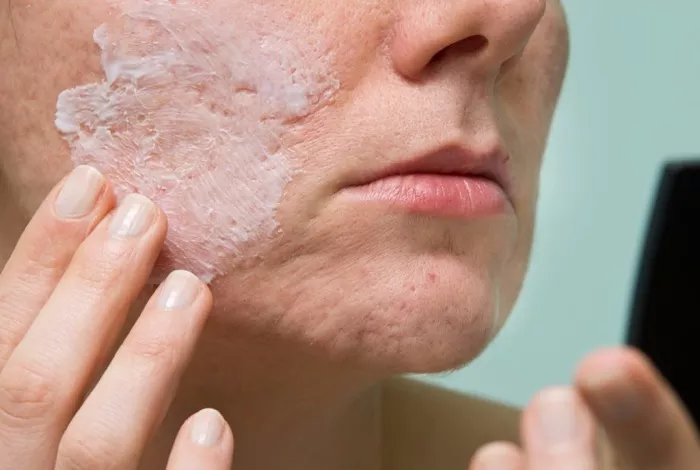Bipolar disorder is a complex mental health condition characterized by extreme mood swings that include emotional highs (mania or hypomania) and lows (depression). Understanding the differences between bipolar disorder type 1 and type 2 is crucial for accurate diagnosis, treatment, and management. Though both conditions share common traits, such as mood swings, they manifest in distinct ways that significantly affect an individual’s daily life. This article will explore these differences in-depth, shedding light on their symptoms, causes, diagnosis, and treatment options.
What is Bipolar Disorder?
Before diving into the differences between bipolar 1 and bipolar 2, it is important to have a clear understanding of bipolar disorder as a whole. Bipolar disorder, formerly known as manic-depressive illness, is marked by drastic changes in mood, energy levels, and activity levels. These mood shifts can interfere with a person’s relationships, career, and overall well-being.
There are three main types of bipolar disorder:
Bipolar I Disorder: Defined by manic episodes that last at least seven days or by manic symptoms so severe that immediate hospital care is required. Depressive episodes also occur, typically lasting at least two weeks.
Bipolar II Disorder: Characterized by a pattern of depressive episodes and hypomanic episodes, but not full-blown manic episodes.
Cyclothymic Disorder (Cyclothymia): A milder form of bipolar disorder that includes periods of hypomanic symptoms and periods of depressive symptoms lasting for at least two years, but they do not meet the diagnostic requirements for a hypomanic episode and a depressive episode.
While both bipolar I and bipolar II involve mood fluctuations, their symptoms, severity, and impact on life vary.
Bipolar I Disorder: Key Characteristics
Bipolar I disorder is often seen as the more severe form of bipolar disorder. The hallmark of this condition is the presence of full-blown manic episodes, which can have a major impact on an individual’s functionality and mental state. Here are the defining characteristics of bipolar I:
Manic Episodes
A manic episode is a period of abnormally elevated mood and energy. For a diagnosis of bipolar I, these episodes last at least seven days or are so severe that immediate hospitalization is required to prevent harm. Symptoms of mania include:
- Inflated self-esteem or grandiosity
- Decreased need for sleep (e.g., feeling rested after only a few hours of sleep)
- Talkativeness or pressure to keep talking
- Flight of ideas or racing thoughts
- Distractibility
- Increased goal-directed activities (e.g., work, social activities, or sexual activities)
- Engagement in risky behaviors (e.g., reckless spending, unprotected sex, impulsive decisions)
Manic episodes can be very destructive, leading to damaged relationships, poor decision-making, and significant impairments in daily functioning. In some cases, mania can lead to psychosis (a loss of touch with reality).
Depressive Episodes
Depressive episodes in bipolar I disorder are also common. These episodes typically last at least two weeks and can include symptoms such as:
- Persistent sadness or hopelessness
- Loss of interest or pleasure in activities once enjoyed
- Significant weight loss or weight gain
- Insomnia or excessive sleeping
- Fatigue or loss of energy
- Feelings of worthlessness or guilt
- Difficulty concentrating or making decisions
- Thoughts of death or suicide
Mixed Episodes
A mixed episode occurs when symptoms of both mania and depression occur simultaneously or in quick succession. For example, a person may feel depressed but have racing thoughts or be easily agitated. This can increase the risk of suicidal behavior due to the combination of hopelessness and agitation.
Psychosis and Hospitalization
In severe cases of mania or depression, individuals may experience psychosis, which includes delusions, hallucinations, and other distorted perceptions of reality. Hospitalization is often required in these situations to ensure the person’s safety and proper care.
Bipolar II Disorder: Key Characteristics
Bipolar II disorder is often mistaken for less severe bipolar disorder because it lacks the full-blown manic episodes seen in bipolar I. Instead, individuals with bipolar II experience hypomanic episodes, which are less intense but still significantly affect behavior and mood.
Hypomanic Episodes
Hypomania is similar to mania but less severe. A hypomanic episode lasts for at least four consecutive days and includes symptoms such as:
- Increased energy or activity levels
- Elevated mood or irritability
- Decreased need for sleep
- Increased talkativeness
- Racing thoughts
- Increased goal-directed activities
- Engaging in risky behaviors (though to a lesser extent than in mania)
Though hypomanic episodes do not cause the same level of impairment as manic episodes, they can still cause significant disruption to daily life, particularly in relationships or work situations. People with hypomania may engage in activities that are uncharacteristic for them, such as impulsive spending or risky social interactions.
Depressive Episodes
Depressive episodes in bipolar II are similar to those in bipolar I, although the intensity of depression may vary. These episodes often lead to severe distress and functional impairment, as individuals with bipolar II experience the full spectrum of depressive symptoms.
No Full Manic Episodes
The primary difference between bipolar I and bipolar II is the absence of manic episodes in bipolar II. While individuals with bipolar II experience periods of hypomania, they do not experience the full-blown mania that characterizes bipolar I.
Increased Risk of Suicide
People with bipolar II disorder are at a higher risk for suicidal thoughts and behaviors, mainly because of the prolonged depressive episodes. Hypomanic periods, while less severe than manic episodes, may not be enough to offset the impact of the depression.
Key Differences Between Bipolar I and Bipolar II
Mania vs. Hypomania: The most significant difference between bipolar I and bipolar II is the presence of full-blown manic episodes in bipolar I. In contrast, bipolar II involves hypomanic episodes, which are less severe and do not result in the level of functional impairment that manic episodes cause.
Severity of Episodes: Manic episodes in bipolar I are often much more severe than hypomanic episodes in bipolar II. Mania can lead to psychosis, hospitalization, and significant disruptions in daily life. On the other hand, hypomanic episodes in bipolar II, while disruptive, do not typically cause the same level of distress or impairment.
Duration of Symptoms: Manic episodes in bipolar I last at least seven days or require hospitalization, while hypomanic episodes in bipolar II last for a shorter period of four days. However, depressive episodes in both types of bipolar disorder can last for weeks or longer and are often similarly debilitating.
Diagnosis and Treatment: Diagnosing bipolar disorder involves careful assessment of a person’s mood history, symptom patterns, and functional impact. Treatment options for both types often include mood stabilizers, antipsychotics, antidepressants, and psychotherapy. However, the treatment plan may vary depending on the specific type of bipolar disorder, as the management of mania in bipolar I requires more intensive interventions than hypomania in bipolar II.
Causes and Risk Factors
The exact causes of bipolar disorder remain unknown, but researchers believe that a combination of genetic, biological, and environmental factors contributes to the development of the condition.
Genetics: Bipolar disorder tends to run in families, suggesting a strong genetic component. Having a parent or sibling with bipolar disorder increases the risk of developing the condition.
Brain Structure and Function: Research has shown that there are structural and functional differences in the brains of people with bipolar disorder, especially in areas that regulate mood and behavior. These abnormalities may contribute to the extreme mood swings seen in both bipolar I and bipolar II.
Environmental Factors: Stress, trauma, or significant life changes can trigger the onset of bipolar disorder or worsen its symptoms. Substance abuse, sleep disturbances, and other environmental factors can also influence the course of the disorder.
Treatment and Management
Managing bipolar disorder typically involves a combination of medication and psychotherapy. Treatment plans are tailored to each individual’s needs and the severity of their symptoms.
Medication
Medications are often prescribed to stabilize mood and manage symptoms. These may include:
Mood stabilizers (e.g., lithium)
Antipsychotics (e.g., quetiapine, olanzapine)
Antidepressants (used cautiously, as they can trigger manic episodes)
Anticonvulsants (e.g., valproate, lamotrigine)
Psychotherapy
Cognitive-behavioral therapy (CBT), psychoeducation, and interpersonal and social rhythm therapy (IPSRT) are effective forms of therapy for people with bipolar disorder. These therapies can help individuals learn coping strategies, manage stress, and maintain a regular routine to prevent episodes.
Lifestyle Management
Maintaining a regular sleep schedule, avoiding drugs and alcohol, managing stress, and staying active can significantly help in managing bipolar disorder. Regular check-ups with a mental health professional are also essential.
Conclusion
Bipolar I and bipolar II are both serious mental health conditions that require careful management and support. While they share some common features, the primary difference lies in the severity and type of manic episodes, with bipolar I involving full manic episodes and bipolar II featuring hypomanic episodes. Understanding these differences is crucial for accurate diagnosis and effective treatment, which can significantly improve the quality of life for individuals living with either form of bipolar disorder.
Early intervention, ongoing treatment, and a strong support system are essential for managing bipolar disorder and preventing future mood episodes. With the right care, individuals can lead fulfilling and productive lives, despite the challenges posed by these conditions.
Related Topics

































